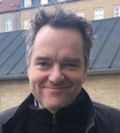EFA Diary 2002
ON THE ROAD TO ROME
by Marion Döring
January ‘02
The EFA/UIP network with eleven festivals around Europe to promote and support the short film genre enters into its second year. At the Premiers Plans Festival in France, EFA and UIP present the Prix UIP Angers for a short film which includes an automatic nomination for the 2002 European Film Awards (three further candidates were already selected in Ghent, Valladolid and London in October and November 2001).
February ‘02
As in the years before the EFA Board holds its first regular annual Board meeting in Berlin on the occasion of the Berlin International Film Festival. The Berlinale, European Film Promotion and EFA stage the VISION DAY with three panel discussions and an impressive range of prolific speakers, including directors Terry Gilliam, Robert Altman, Cathérine Breillat, Max Färberböck, Claude Lanzmann, Hans-Christian Schmid, Goran Paskaljevic, Danis Tanovic, and István Szabó; producers Jakob Claussen and Thomas Wöbke, Antoine de Clermont-Tonnere, Cedomir Kolar, as well as actors Moritz Bleinbtreu and Jürgen Vogel, actresses Assumpta Serna, Maria Bonnevie, Nina Proll, Ludivine Sagnier and agents Sheila Rubin and John Hubbard. For the third time and again during the Berlinale, the European PitchPoint - a co-operation with Script House (Berlin), Maurits Binger Institut (Amsterdam) and Focal (Lausanne) - invites 12 writers to pitch their stories to an audience of international producers. EFA members Angus Finney, Uli Felsberg, Antonio Perez and Renate Roginas are serving on the jury. EFA and UIP present the Prix UIP Berlin, the winner of which is nominated in the short film category of the European Film Awards 2002.
March 02
The Tampere Short Film Festival is festival number six to award a short film with the Prix UIP and to nominate it for the 2002 European Film Awards. EFA Director Marion Döring and European Film Awards producer Sarah Henderson from DDA Productions meet in Barcelona with the City Council: Barcelona presents its candidature for hosting the 2004 Awards ceremony. While the Barcelona based film industry expresses its support and strong wish to organise the Awards in the Catalan capital in 2004, the selection procedure for the 2002 edition starts in Berlin: 50 European institutions, associations and media are co-operating again.
April ‘02
EFA Chairman Nik Powell, Marion Döring and Gisela Corsten from the EFA Secretariat as well as Sarah Henderson from DDA Productions are meeting in Rome at Italian Board member Adriana Chiesa di Palma?s home with Italian producers and directors. At the directors? gathering Citto Maselli, Francesco Martinotti, Mario Monicelli, Giuseppe Piccioni, Gillo Pontecorvo, Francesco Rosi, Pasquale Scimeca, Ettore Scola, and Silvio Soldini suggest to dedicate the EFA conference in conjunction with the 2002 European Film Awards ceremony in Rome to film education at school. Their proposal is embraced with much enthusiasm by the EFA Board. On the occasion of the Spanish presidency of the European Union, the Spanish ministry for culture hosts a conference on the co-operation of the European audio-visual industry with third countries, where Marion Döring presents the European Film Awards concept and its role for promotion.
May ‘02
Only a few days later the EFA Board holds an informal meeting in Sevilla upon invitation of the Spanish ministry of culture within the framework of the EU presidency programme. The Board members also attend the European conference on film heritage. Another informal Board meeting is held during the International Cannes Film Festival. The Cracow Short Film Festival in Poland joins the EFA/UIP network for short film and presents for the first time the Prix UIP Cracow.
June ‘02
Presentation of the Prix UIP Grimstad in Norway. In Rome the Consultative Committee for the European Film Awards holds its first meeting. A week later EFA president Wim Wenders, the Mayor of Rome, Walter Veltroni, and the Italian Minister for culture, Giuliano Urbani, announce officially the presentation of the European Film Awards in Rome on December 7th. Later in the night the announcement is celebrated with a dinner in the presence of Roberto Benigni on Italian EFA Board member Roberto Cicutto?s terrace. On June 27th, EFA, the Museumsinsel Festival Berlin, Balasz Kino, the State Museums and the Polish Institute Berlin are hosting a an encounter of Austrian filmmakers Michael Haneke and Ulrich Seidl at one of the most breathtaking venues – in front of the Pergamon Altar in the Pergamon Museum in Berlin. The debate is dedicated to Polish filmmaker Krzysztof Kieslowski who would have celebrated his 61st anniversary that day. Ulrich Seidl?s HUNDSTAGE (Dog Days) is screened later that night open air on the museum?s island.
July ‘02
In Portugal, EFA member and Norwegian filmmaker Anja Breien presents the Prix UIP Vila do Conde. In Karlovy Vary, upon invitation of the festival, the EFA Board members come together for the European Film Awards selection. This is already the third Board meeting in Karlovy Vary. Second financial meeting with the authorities in Barcelona. !
August ‘02
Presentation of two Prix UIP for short films that are automatically nominated for the European Film Awards: Prix UIP Sarajevo and Prix UIP Edinburgh. At the EFA secretariat, Maria von Hörsten collects 1,500 video tapes from each of the 37 producers whose films are short listed for the European Film Awards.
September ‘02
The short film nominees for the 2001 European Film Awards are complete: In Venice, EFA and UIP present the 11th Prix UIP. 55,500 video tapes are carried by EFA sponsor TNT to the EFA membership around the continent to view the 37 films and to vote for their favourites. For the first time they are invited to nominate not only three films, but also three directors, three actors, three actresses, three screenwriters and three cinematographers. At the same time, Tiscali open their efa.tiscali.com
website for the pan-European audience to vote for their best director, best actor and best actress through the People?s Choice Awards. The Italian Advisory Committee for the preparation of the European Film Awards meets in Rome.
October ‘02
Upon invitation of the City of Barcelona, the Board holds its nomination meeting for the European Film Awards in the Catalan capital. EFA, UIP and the International Flanders Film Festival present the eleven short film nominees 2002 and their directors in Ghent. It is the second time that the directors of the shorts get the opportunity to meet over a couple of days, and to get to know each other?s work. All parties involved agree: this is to be continued. For Bettina Schwarz, who is new on the EFA team and replacing Bianca Köppen as Prix UIP co-ordinator, it is the first festival to co-operate with. At the same time the international jury already selects the Prix UIP Ghent winner and first short film nominee for the 2003 European Film Awards. An EFA delegation headed by Wim Wenders meets in Paris with Arte president Jérôme Clément to discuss possibilities of a stronger co-operation in the future. Documentary jury meeting in Berlin: Russian filmmaker Marina Goldovskaya, documentary producer Luc Martin-Gousset from Paris and Cologne International Film School director Simone Stewens decide upon the 2002 European Documentary Award – Prix Arte.
November ‘02
The Prix UIP Valladolid is presented and the second short film nominee for 2003 confirmed. Count-down for Rome: DDA Productions staff and EFA staff move step be step to Rome.
December ‘02
The European Film Awards week-end under the auspices of the European Film Academy on Friday and Saturday, December 6th and 7th, becomes again an all-industry encounter: the European Producer?s Club, the heads of the national film institutes in Europe, the presidents of the national academies and of the national film awards, the British Screen Advisory Council – they all are holding meetings in Rome. The annual EFA conference is dedicated to the next audience generation: film education at school is the subject that is debated by so prolific filmmakers as Jeanne Moreau, Stephen Frears, Francesco Rosi and Wim Wenders, as well as by several ministers for culture and the EU commissioner for culture and education.








